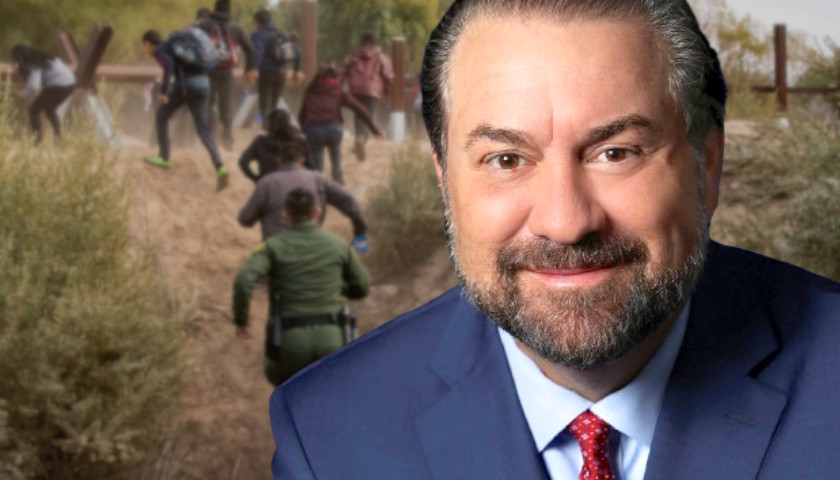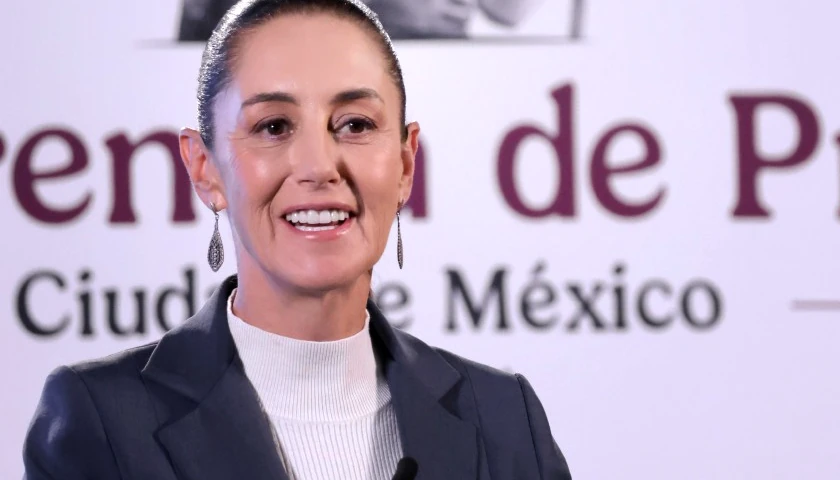by Bethany Blankley
Former Republican Arizona Attorney General Mark Brnovich again on Tuesday argued the constitutional authority given to states for self-defense.
Brnovich testified at a U.S. House Judiciary Committee hearing addressing the issue after being the first and only state attorney general to issue a formal legal opinion that defines an invasion and lays out the constitutional authority of states’ self-defense.
Other testimony was presented by representatives of the Texas Attorney General’s Office, the Immigration Reform Law Institute and the ACLU.
Brnovich’s testimony reiterated arguments from his legal opinion defining an invasion and Arizona’s right to self-defense under Article 1, Section 10, Clause 3 of the U.S. Constitution.
The opinion, published on Feb. 7, 2022, was instrumental to three Texas counties being the first in the country to declare an invasion on July 5, 2022. Despite numerous calls for Texas Attorney General Ken Paxton to issue a similar opinion, he did not. Paxton’s first assistant, Brent Webster, who also testified on Tuesday, previously argued counties declaring an invasion were “short-sighted” and “the Mexican army wasn’t invading our country.”
Retired FBI counterintelligence experts have argued the opposite after millions of single military-age men have poured through the southern border wearing camouflage, carrying weapons and fentanyl, saying they constitute a “soft invasion.” They overwhelmingly outnumber U.S. Army companies (100 soldiers), battalions (1,000), brigades (5,000), divisions (15,000) and corps (45,000).
“In its modern history, the U.S. has never suffered an invasion of the homeland, and, yet, one is unfolding now,” they warned Congress. “Military age men from across the globe, many from countries or regions not friendly to the United States, are landing in waves on our soil by the thousands – not by splashing ashore from a ship or parachuting from a plane but rather by foot across a border that has been accurately advertised around the world as largely unprotected with ready access granted.”
Former active-duty Navy JAG and General Counsel for Citizens Defending Freedom, Jonathan Hullihan, challenged Webster’s argument, arguing Texas is under invasion by transnational criminal organizations using nontraditional warfare. While Paxton’s office has focused on immigration case law, Hullihan and others argue the issue facing Texas is about national security and constitutional authority, not immigration enforcement.
On Tuesday, Webster partially reversed course, saying Texas Gov. Greg Abbott was “right” to invoke the invasion clause but focused his testimony on litigation efforts unrelated to the clauses Brnovich, Hullihan, and Florida Gov. Ron DeSantis, all former active-duty JAGs, have championed.
They were among the first to argue the federal government has abdicated its authority under Article 4, Section 4 of the U.S. Constitution (Guarantee Clause). As a result, the states, under Article 1, Section 10, Clause 3 (Self-Defense Clause), have a right to defend themselves when “actually invaded, or in such imminent Danger as will not admit of delay.”
Kinney County Attorney Brent Smith was the first to call for counties to declare an invasion, citing these clauses. Hullihan argues of the 51 county invasion resolutions passed, Crockett County’s invasion declaration best describes the threat of nontraditional warfare.
Brnovich testified a state “does not need the consent of Congress” to declare an invasion. He said the Guarantee Clause “provides that the United States shall protect each state against invasion. This clause provides dual protection against an invasion broadly defined. This includes not only defending against actions by foreign hostilities but also other enterprises and more powerful neighbors as the constitution states.” It also “encompasses a broad self-defense” against non-state actors like cartels and gangs operating along the border.
He also referenced the import-export clause in Article 1 Section 10, included in his formal opinion, arguing that founding father James Madison “specifically cited Virginia using its militia to stop smugglers as an example of a valid exercise of the invasion power, and there is every basis to conclude this sovereign power was retained as reflected in the State Self-Defense Clause.”
It recognizes that states “retain sovereign authority to execute inspection laws which requires operational control of the state’s border to channel entry of goods to authorized ports of entry,” he said. “This is an aspect of the historical police power that is expressly reserved for the States. In sum, both the power of self-defense against actually being invaded and the power to execute inspection laws are sovereign powers that have been retained by the states under the U.S. Constitution.” It also authorizes states to repel an “invasion of their borders that is a threat to public safety and security.”
Cartel violence and lawlessness along the U.S. southern border “is extensive, well documented, and persistent,” Brnovich said, which satisfies the definition of being invaded under the Constitution. He reiterated that the clauses clarify that “the federal government has a duty to protect states under the invasion clause;” when it “fails to meet its constitutional duties states retain the independent authority under the state self-defense clause to defend themselves when actually being invaded.”
“There is nothing in federal constitutional or statutory law authorizing the federal executive to thwart the states from ensuring on the ground safety and orderly border within their states,” he said. “Nor is there any conflict with this and the orderly conduct of immigration policy by the federal executive. No state should ever be put in the position that border states have been put in through the federal government’s recent actions.”
Brnovich also urged Congress to remember that “states created the federal government, not the other way around. When the federal government refuses or neglects to protect its citizens, the states have an obligation and the ability to do so.”
– – –
Bethany Blankley is a contributor to The Center Square.








